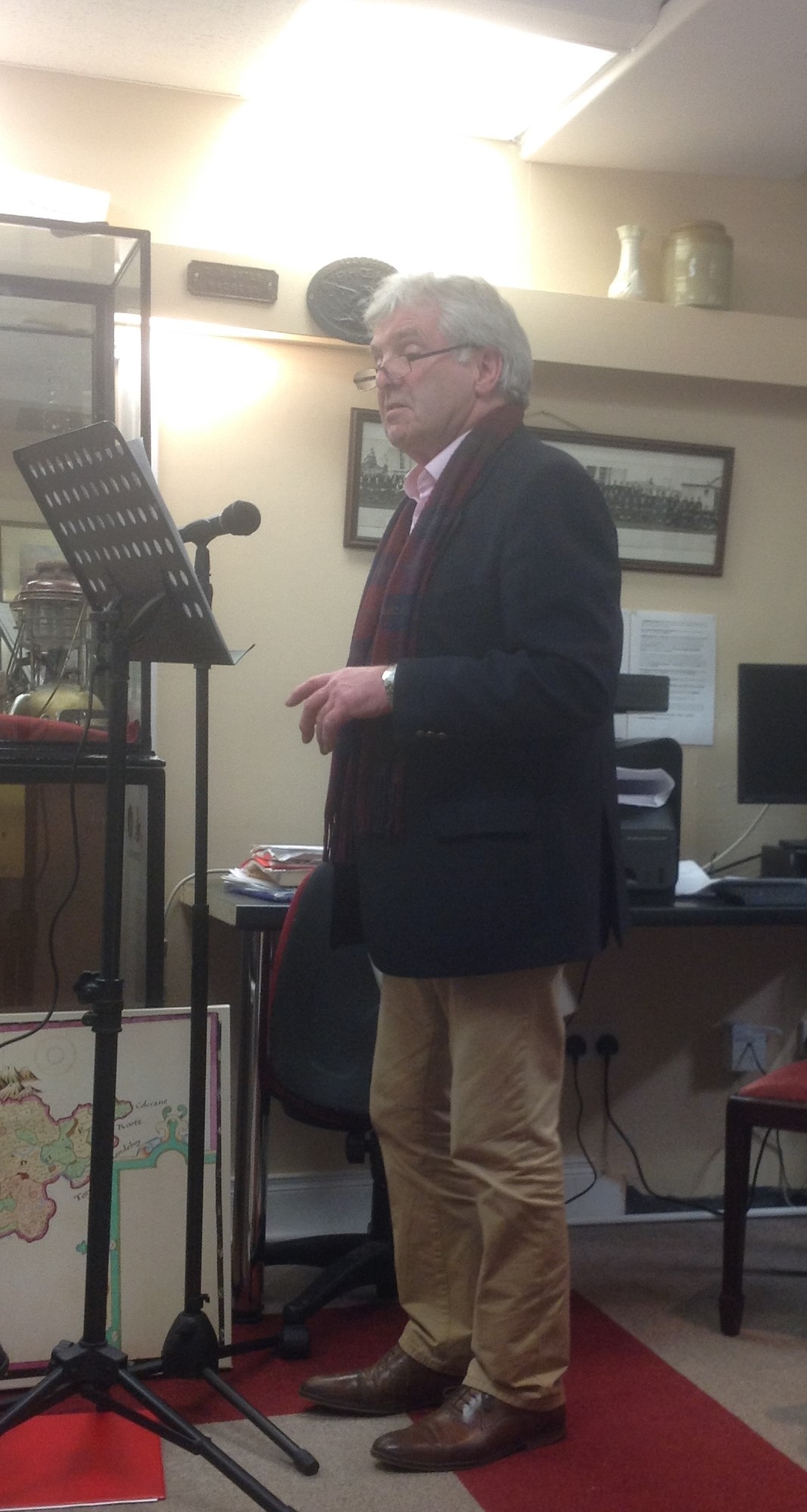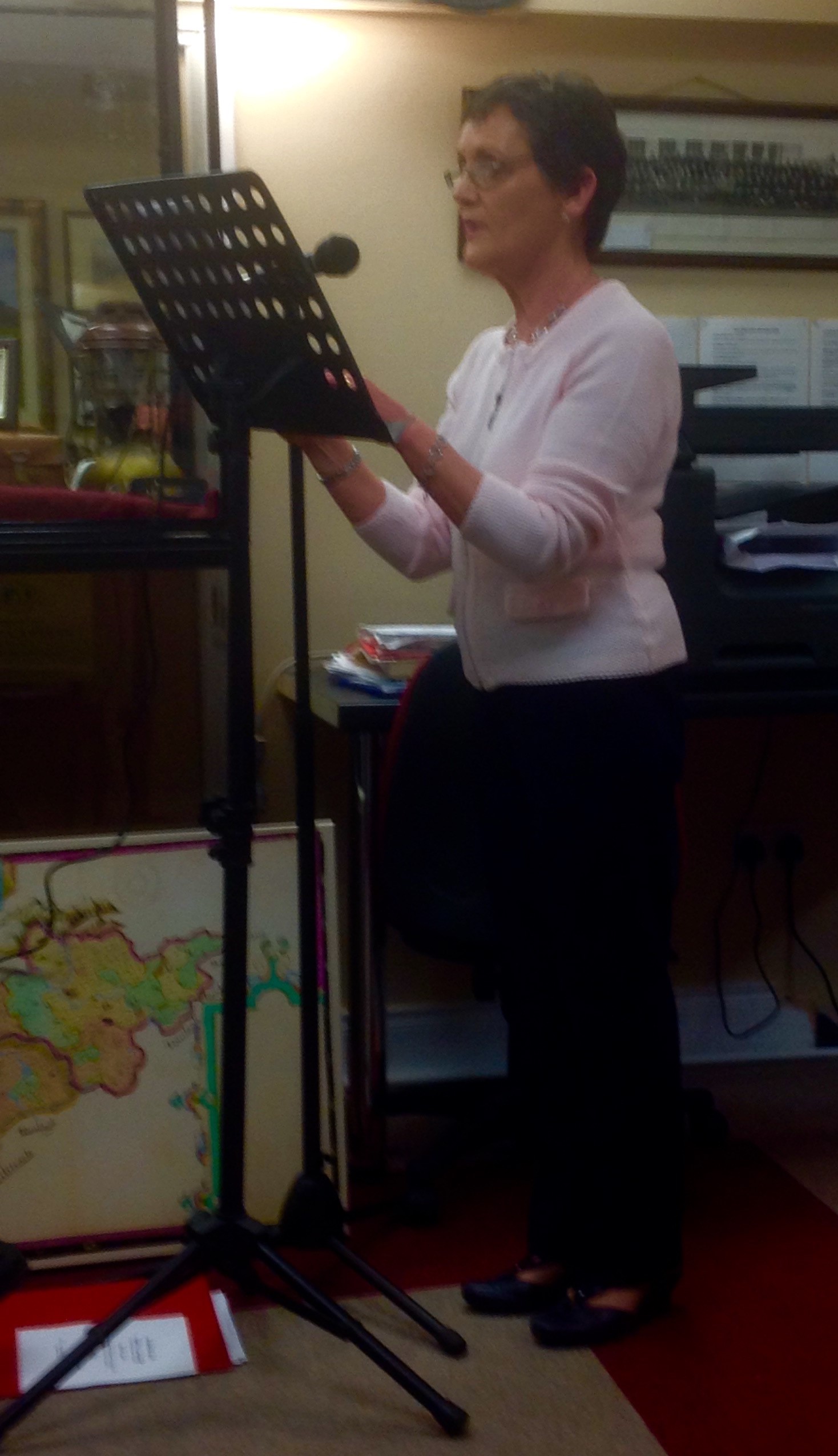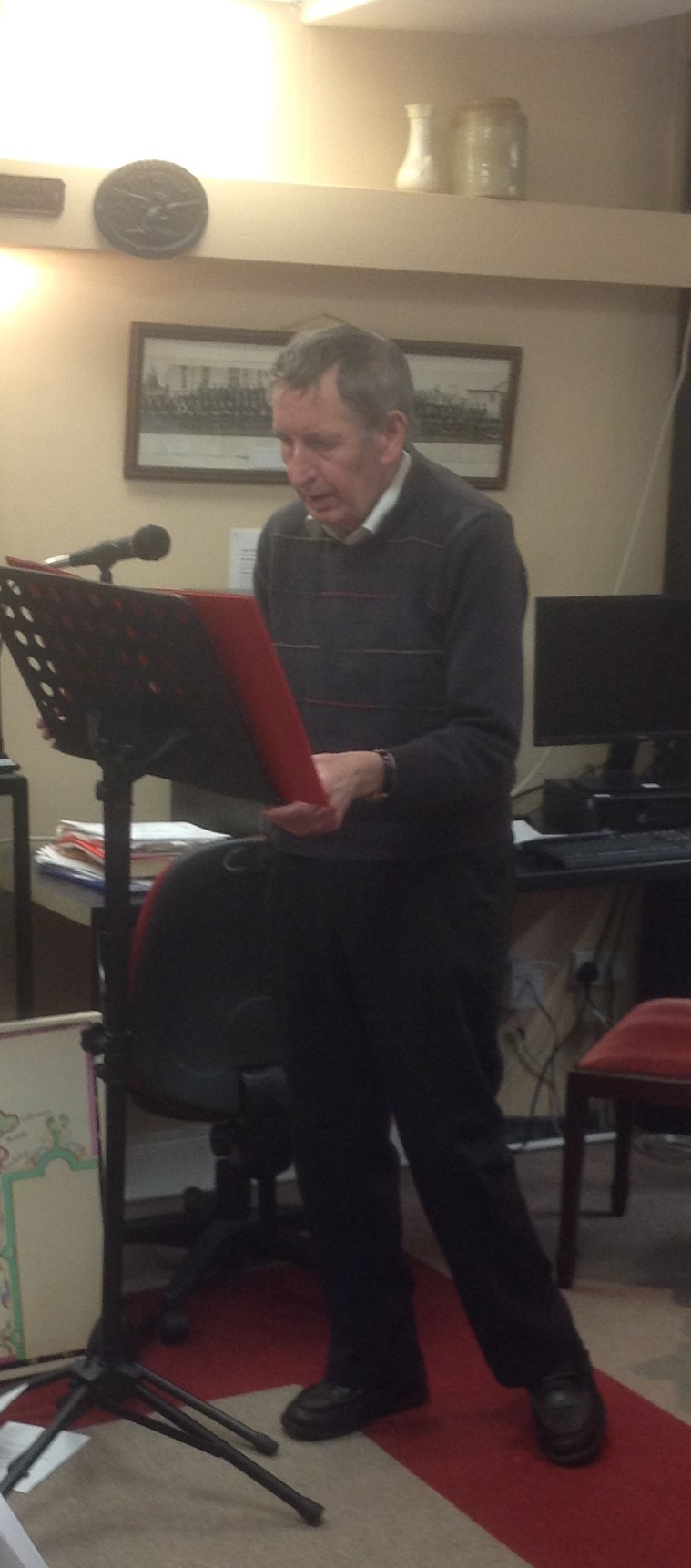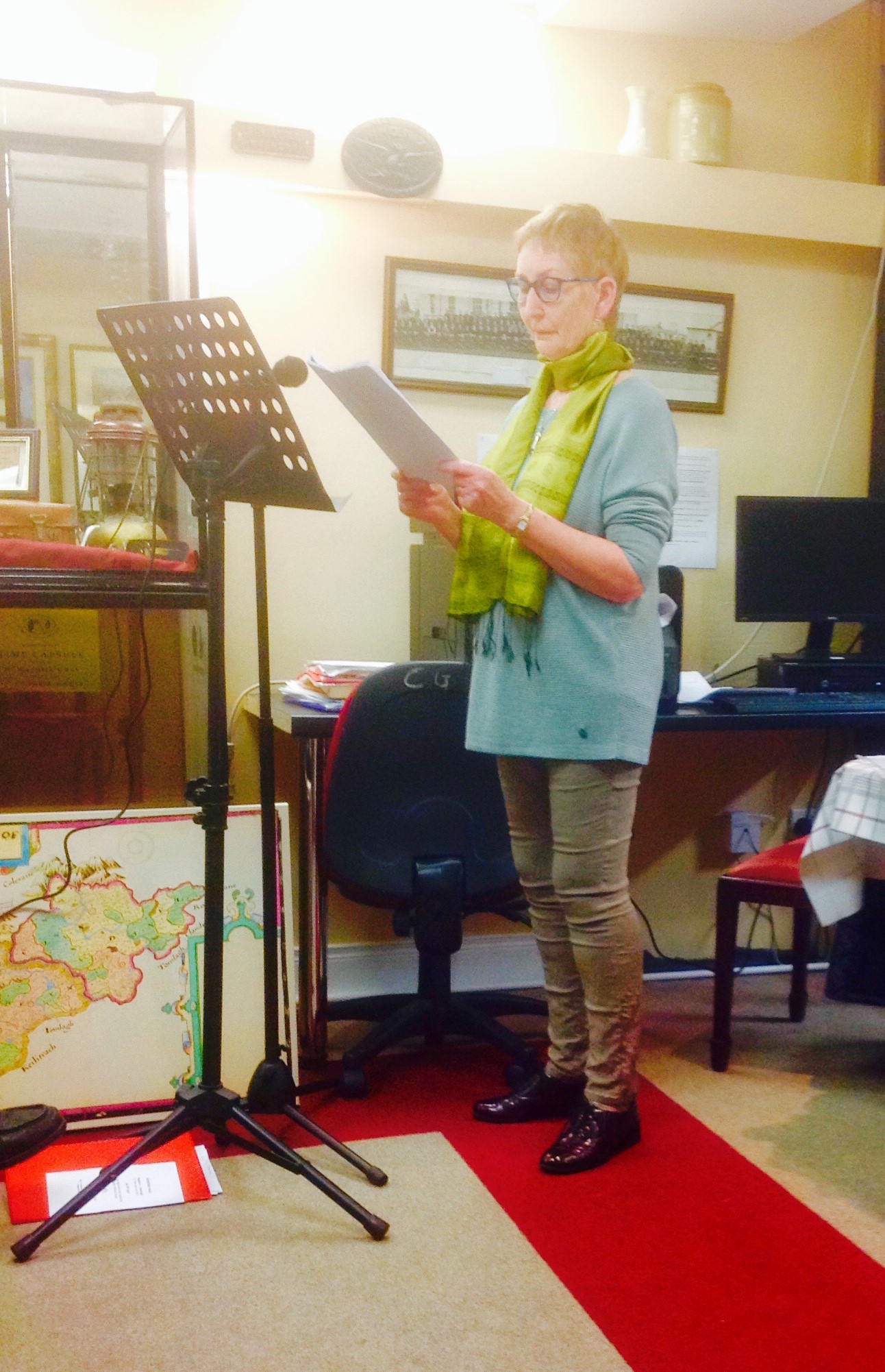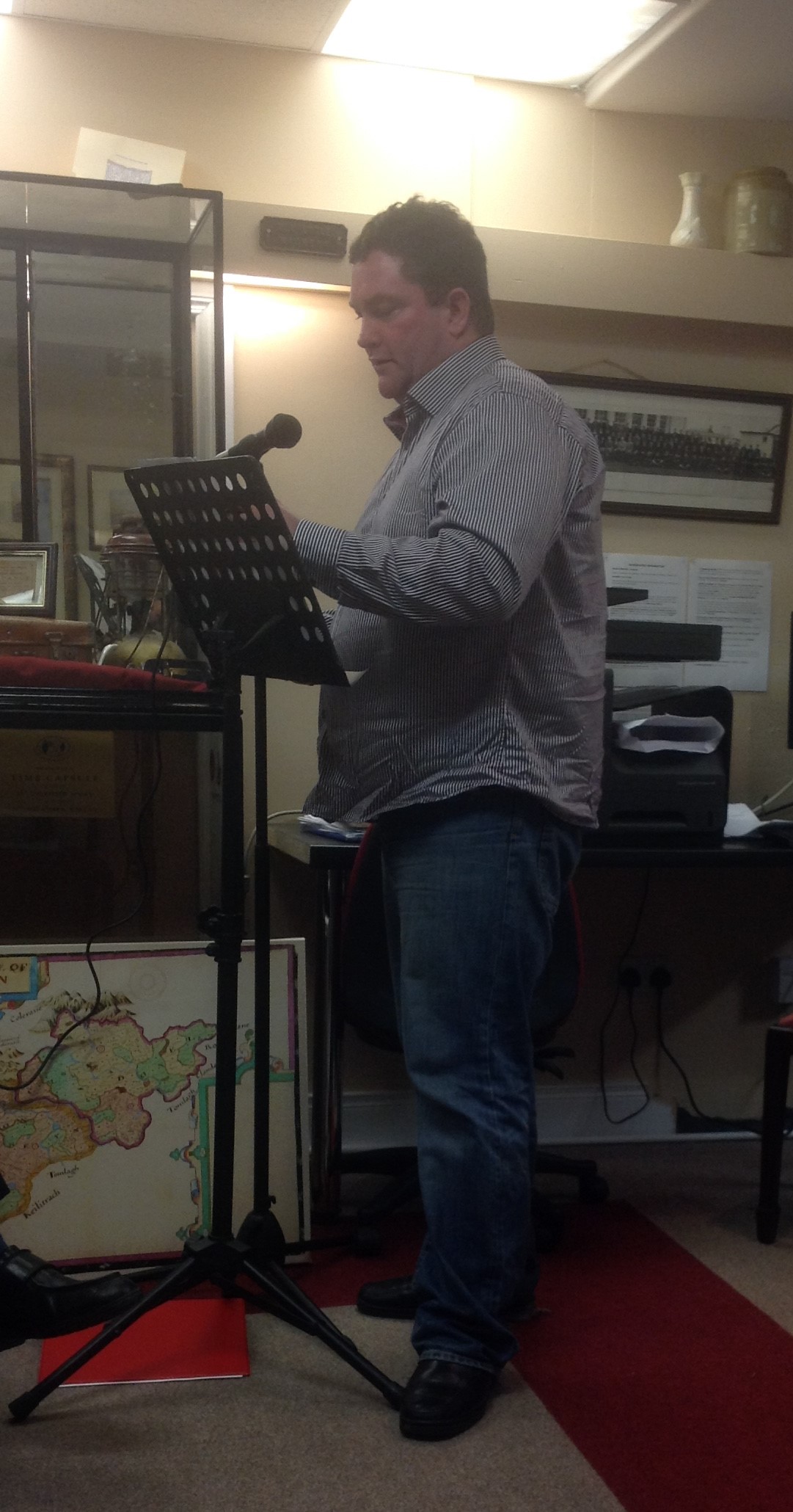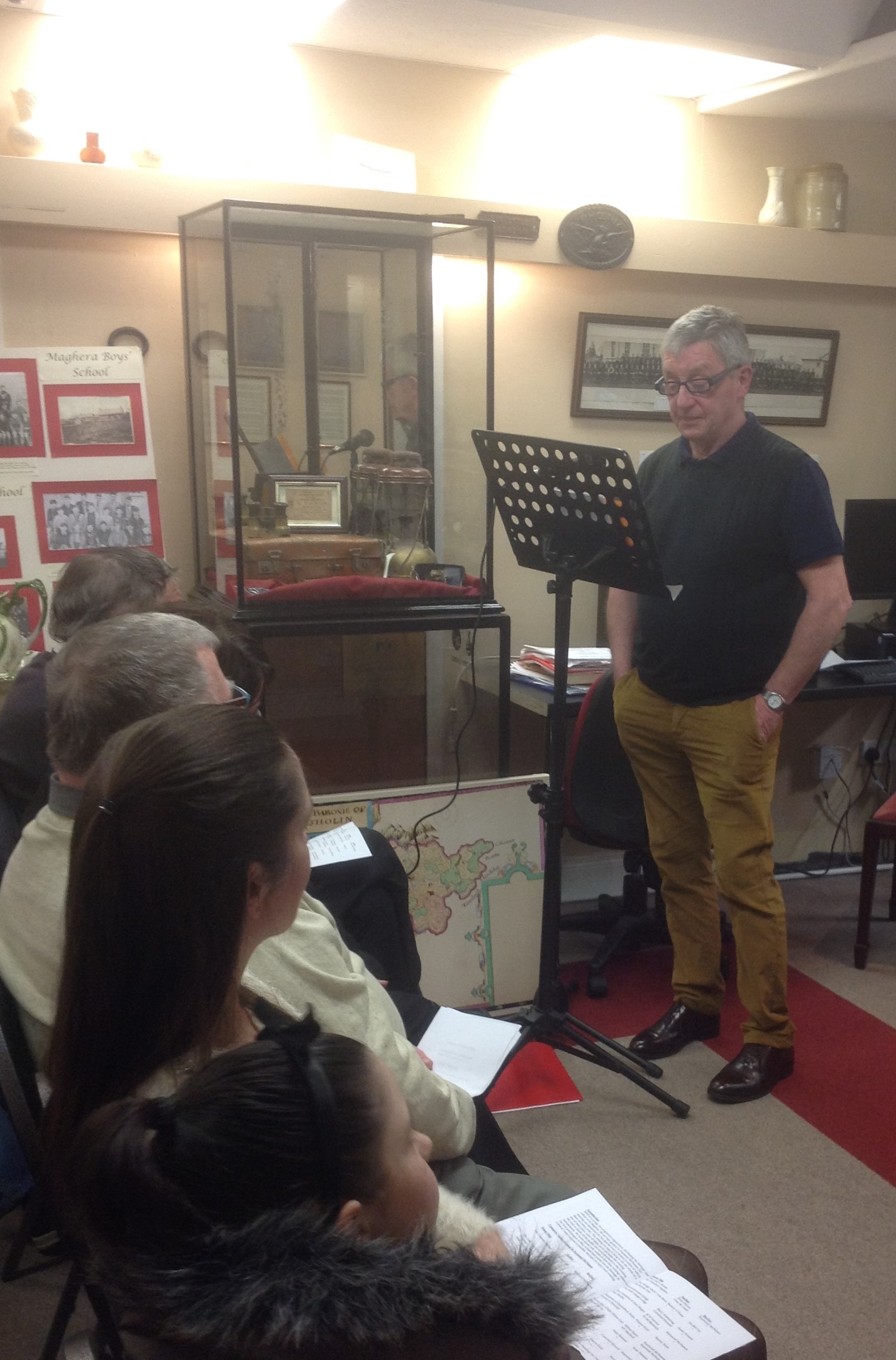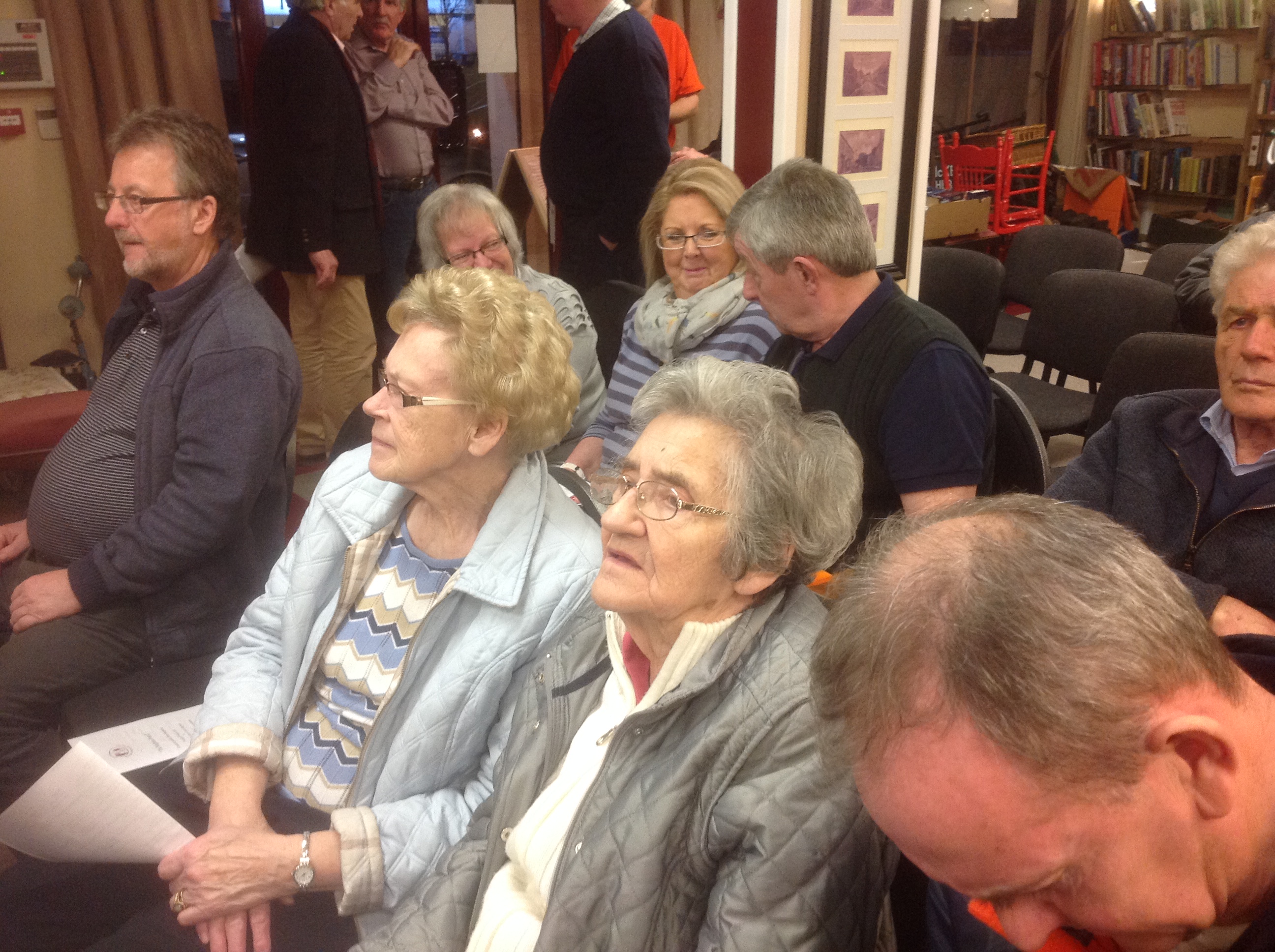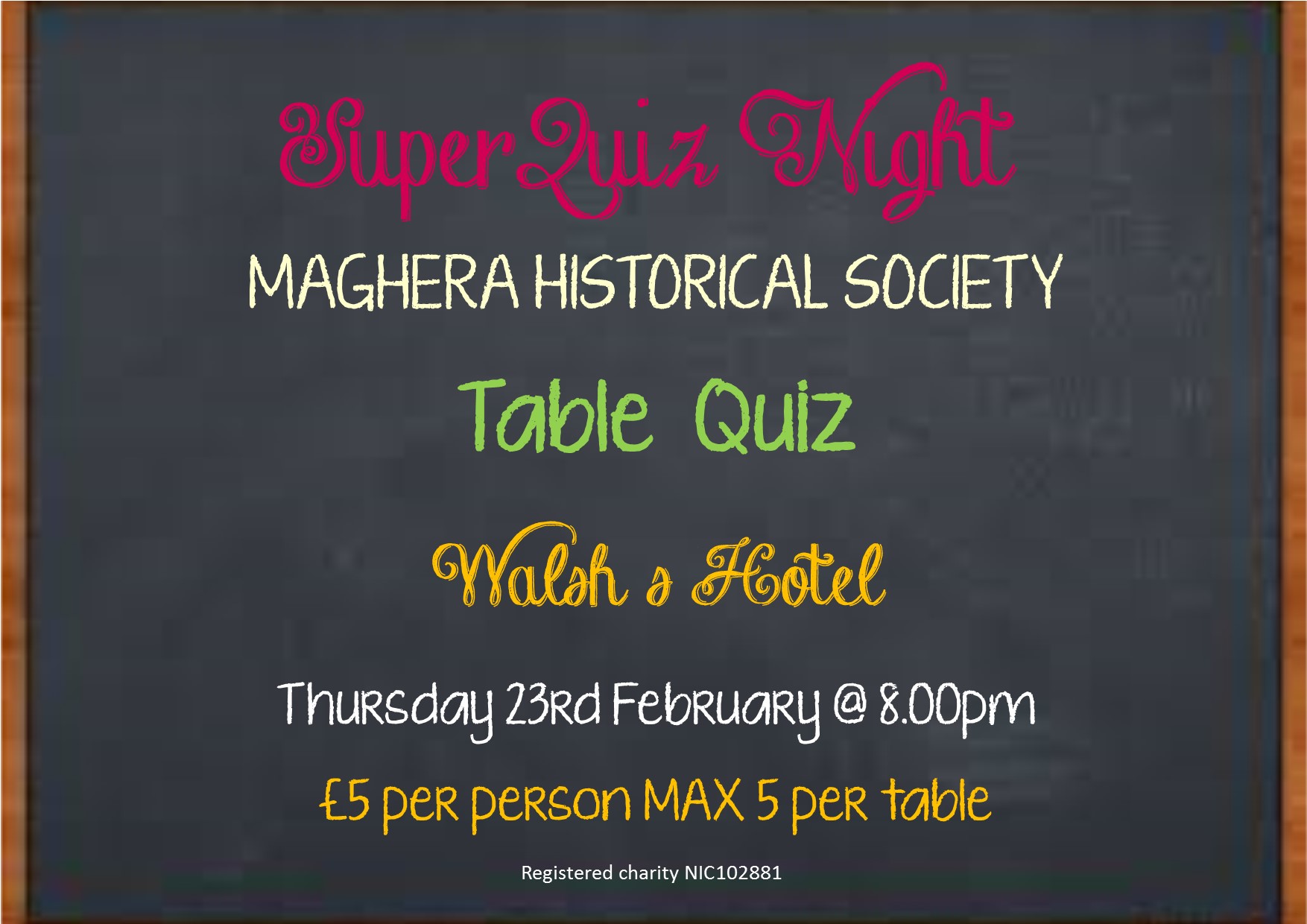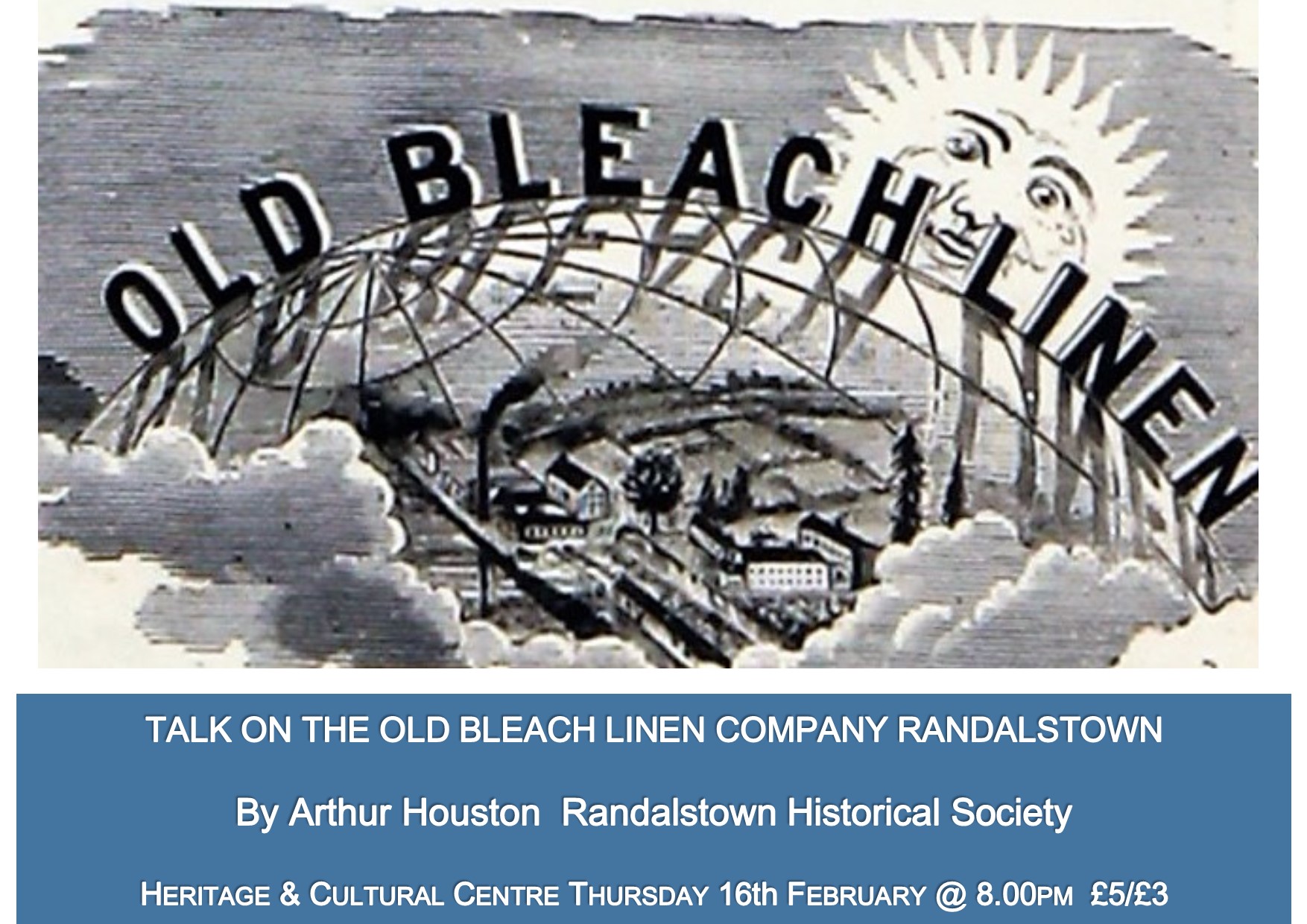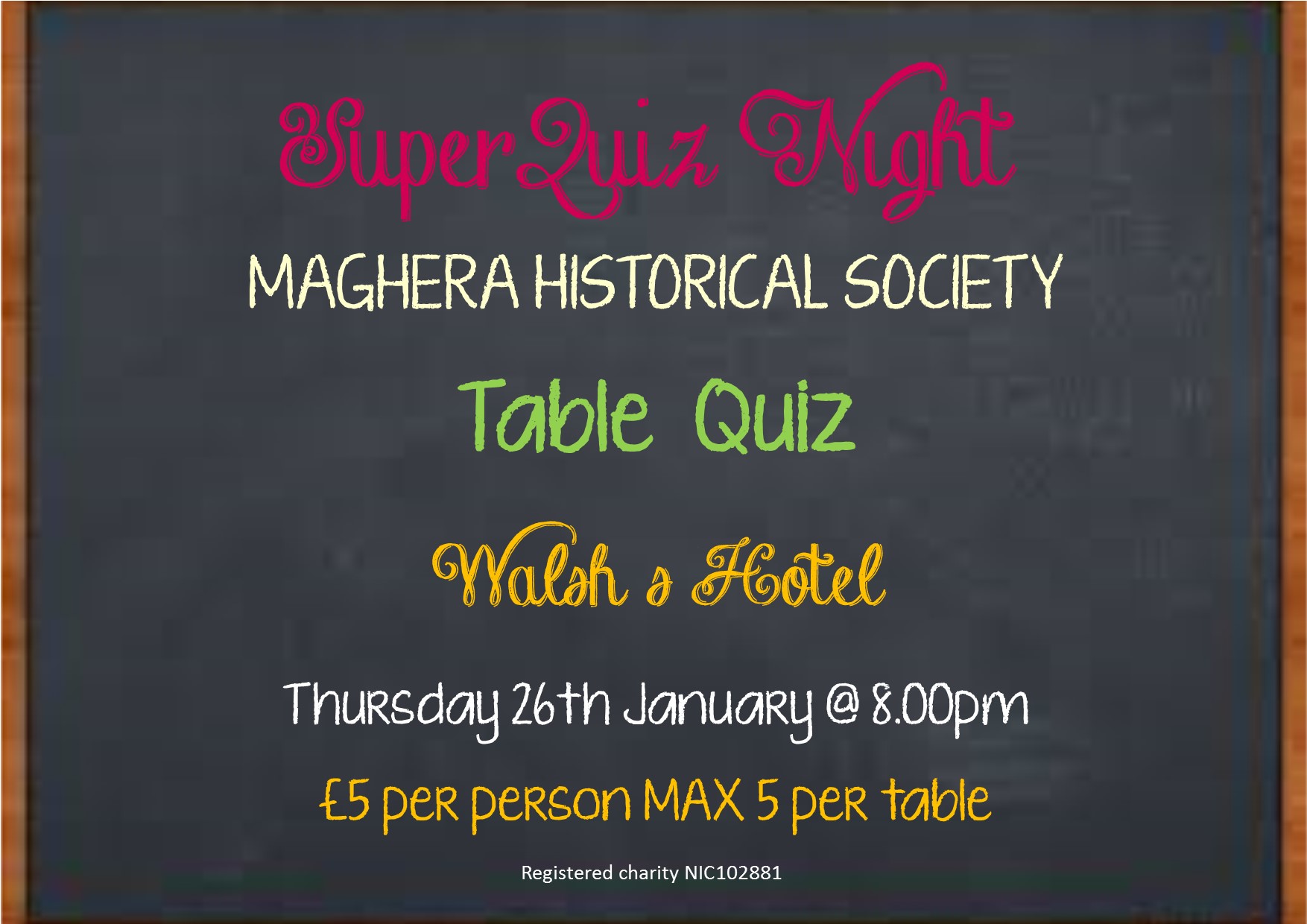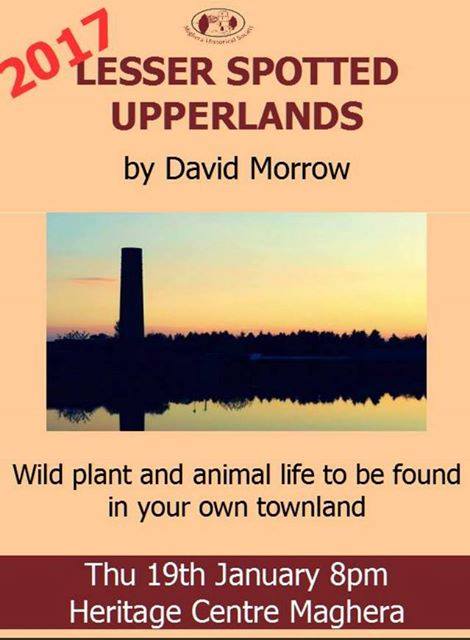When I was growing up in Maghera in the fifties and sixties we were given time off school in October, known as ‘the potato gathering holiday,’ This provided an opportunity for us children to participate in the potato harvest – that is, those of us who were willing to take up the challenge and earn some extra pocket money in the process.
On my first day in the field I was gathering for a fair-minded man called Willie Paul. The work was steady throughout the day, and with the approach of evening, Willie duly decided it was quitting time. I received from him the much-loved, and later greatly missed, little ten-bob-note. To put this into perspective, my pocket money at the time would have been one shilling, while a quality bar of chocolate would have cost sixpence. This was the first time in my life that I had earned any money and I arrived back in Maghera, after walking home with my friends, a proud boy. I decided to buy a present for my mother and purchased a small bottle of perfume for 1/6 in Bobby Martin’s Chemist shop, which left me with 8/6 – a small fortune to me.
Conditions varied greatly from farm to farm. I can recall gathering at a farm on the verge of the town on the station road with my good friend Mervyn Cochrane and other children. This was one of the hardest day’s work we ever did. I can remember gathering to meet Mervyn and the large amount of potatoes lying between us. We had to go to the house to be paid, with the two of us receiving ten shillings but with some of the younger children receiving considerably less than this, perhaps as little as five shillings. This caused a bit of a stir when some of the youngsters arrived home, with one or two of the mothers considering going to the house to protest but then, I think, they decided to grudgingly accept it.
I was keen to gather potatoes during these years, even doing so after school, walking down the Mullagh Road with my good friend William Anderson to work on Marshal’s farm. It would have been common at that time for the farmers to have cruised about Crawfordsburn on a Friday night booking gatherers for the next day. If we were heading out into the country to a farm, getting to and from the field was, on occasion, verging on the comical. I was often amazed at how many gatherers could be transported safely in the back of a mini-van.
We gathered the potatoes into a large wooden creel, which two of us could lift, moving it forward of the potatoes yet to be gathered. It was wise to take time to scrape the muck off it as we worked, keeping it as light as possible. If the potatoes were being transferred from the creel to the bag that would have been the wrong time to share a joke, as this could have meant the potatoes toppling down the side of the bag instead of into it!
The small grey Massey Ferguson tractor was popular amongst the farming community in Maghera at that time – even for taking the wife into town to do a bit of shopping. This tractor, with a digger attached, dug the potatoes for us to gather. Once a drill had been dug, if the farmer was in no great hurry, he waited until we had gathered it all before digging the next one. This allowed us to have a short break before resuming work. Alternatively, if the farmer was in a more determined mood, he would have been digging the next drill while we were still gathering the previous one, what we would have referred to as ‘digging two ways’. This, of course, meant no break for us between one drill and the next.
I previously mentioned about the difference in conditions from farm to farm – a difference I still remember to this day. One pleasant day still stands out in my mind, I was gathering for Linton in the townland of Grillagh, and we were gathering ‘blues’. The pace was leisurely and the countryside was peaceful. As we gathered the potatoes they were placed in a heap forming a neat line. They were then protected from the weather by soil and straw. This process was known as pitting. The ‘blue’ potato was well liked and more common at that time than it is today – rather like a plain white unsliced loaf with a hard top and no wrapping paper! It was good to eat and, not being too small, easier to gather. In the middle of the day the woman of the house brought the food to the field in a large basket. I can remember so well the delicious egg and onion sandwiches we had that day along with the good strong mug of tea. It was almost like having a picnic. I received twelve shillings and sixpence for that day’s work. For a young gatherer like myself this was as good as it got.
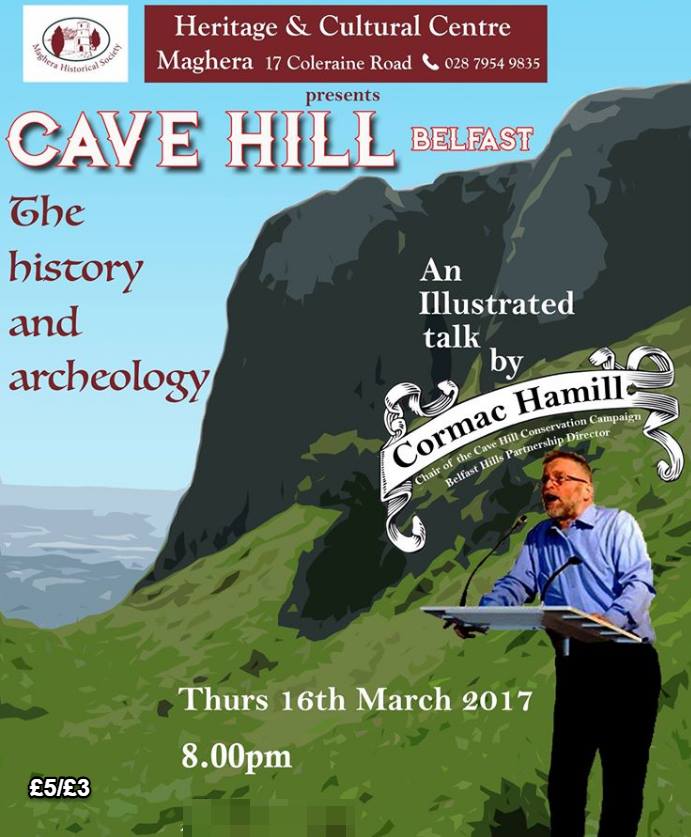 On Thursday 16th March MHS members and guests were privileged to be treated to an unique insight into the geology, archaeology, botany and history of the Cave Hill This was delivered by Cormac Hamill, broadcaster and environmental campaigner. Cormac provided a comprehensive and entertaining exploration of the Cave Hill as he led us from the Basalt origins of the area to the present day hill with its five natural caves. In recent years, Cormac has been to the forefront in campaigning for the preservation of this natural treasure.
On Thursday 16th March MHS members and guests were privileged to be treated to an unique insight into the geology, archaeology, botany and history of the Cave Hill This was delivered by Cormac Hamill, broadcaster and environmental campaigner. Cormac provided a comprehensive and entertaining exploration of the Cave Hill as he led us from the Basalt origins of the area to the present day hill with its five natural caves. In recent years, Cormac has been to the forefront in campaigning for the preservation of this natural treasure.
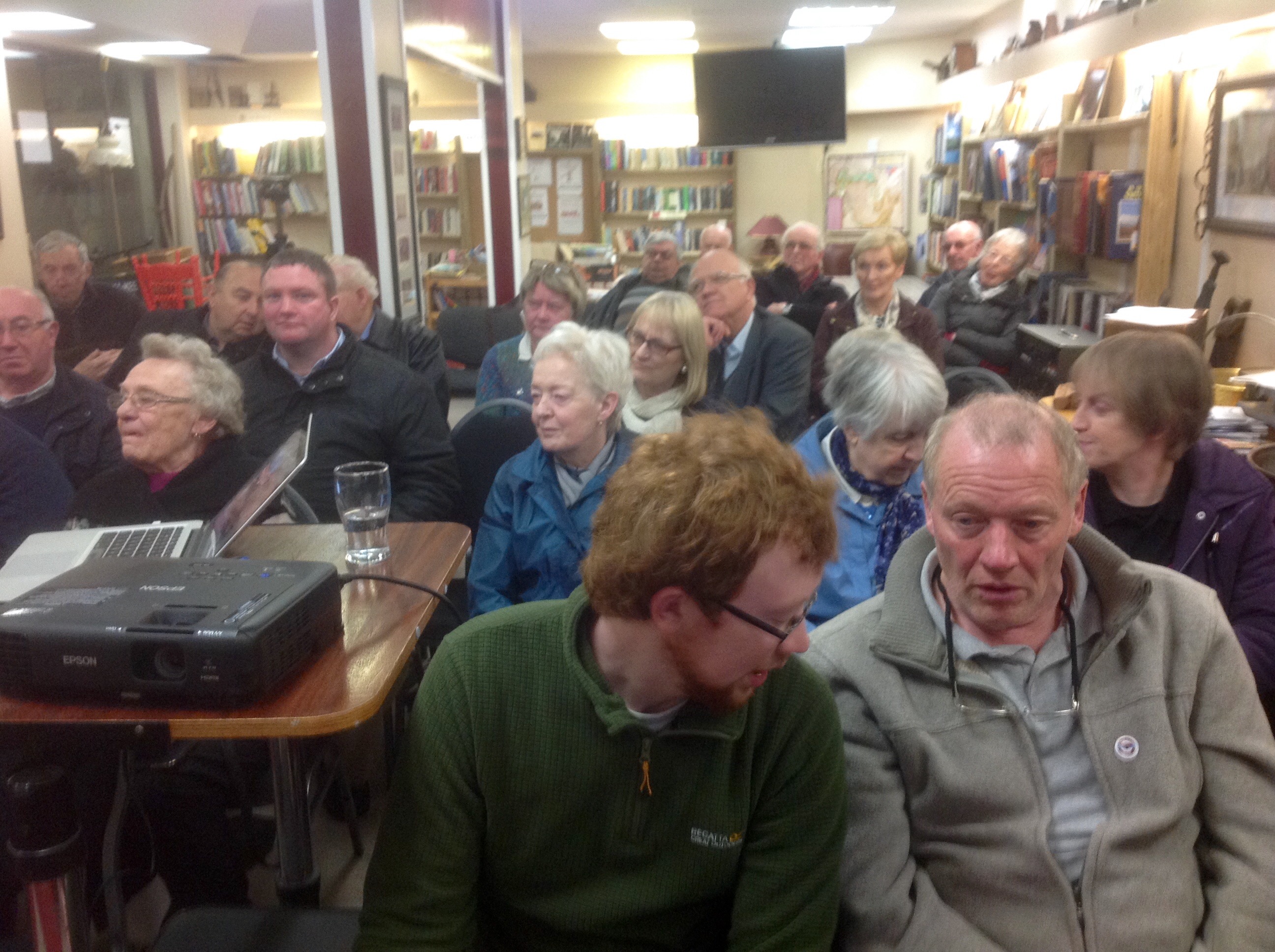
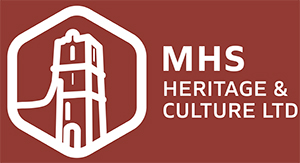
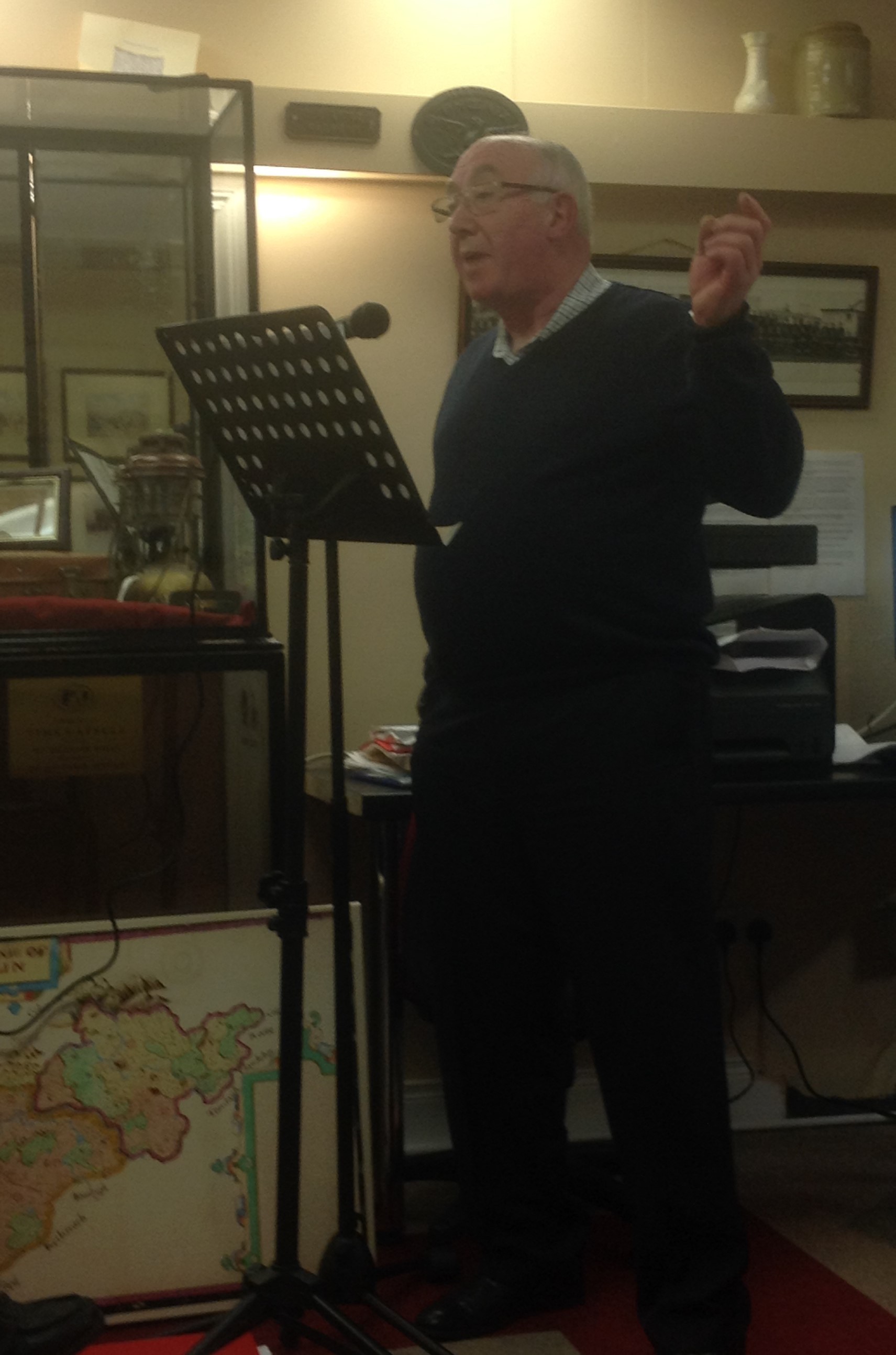 ate.
ate.
